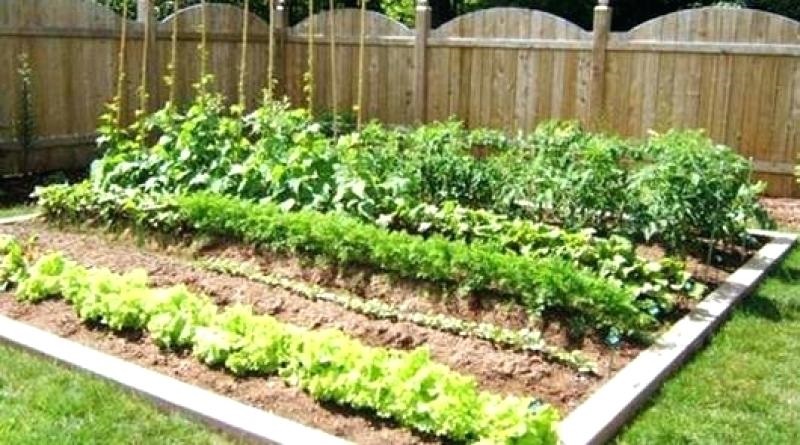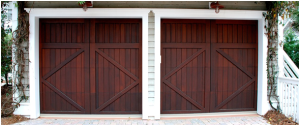A small gardening guide for beginners. Whether it is a vegetable garden or a garden, growing plants can be a very rewarding hobby, as well as a great way to keep anxiety and stress away, even if we are not expert gardeners (or farmers).
Gardening: how to start
A small piece of land, a terrace or a balcony is enough to get excited about this activity, obtaining excellent results. To start, simply follow simple basic rules, starting from less demanding crops, learning along the way. Keep reading: Isolate the walls of the house from noise to improve the quality of life
1. Start with clear ideas
Which and how much space do you have available? Garden or garden? Why not both?
Before launching yourself headlong into the business, make a small project, even ideally, make a list of the varieties you prefer and would like to grow, informed about characteristics and needs. Start with small, easy-to-manage projects, develop your green area one step at a time.
2. Gardening for beginners: the position is fundamental
The most important part of gardening is to make sure you place the plants in the right places. Some plants love the sun, while others thrive in the shade. There are plants that require frequent watering, others will die.
Do your research and find out what types of plants are suitable for your garden, taking into account the type of soil, sunlight, water, and drainage. Observe your space to understand how light moves, the most shaded corners, the sunniest areas. It is an important evaluation to do, in order not to make positioning errors. Each species has its own needs, some require sun for many hours a day, others live well in cooler and shady areas. If you grow in pots you can also move them, if you put your plants in the ground you can not go wrong.
3. The space necessary for plants
Plants need enough space to grow so they are not competing to get the nutrients they need. Of course, you can create compositions, but always evaluate the space they will occupy during growth and development. Not only the space above the earth but also that necessary for the proper development of the roots.
The right key is to plan. For a beginner who decides to devote himself to gardening, it may not be obvious: we place seeds or small seedlings without taking development into account. A very common mistake. We plan the arrangements thinking about the future, it does not matter if for the first time there will be many empty spaces, they will be filled soon!
4. Preparation of the land for the garden
Preparing an optimal soil for potted plants is not difficult, often it is the same seller who recommends the most suitable soil. For a garden or a vegetable garden, the speech is different. Looking and touching the earth you can already have some indications: how does the ground behave when it rains? does water stagnate? Is it absorbed quickly? When it dries becomes compact in rather hard plates? Or does it remain friable?
Dig a little clod, look at it and manipulate it with your fingers. If it tends to compact, it will probably be a clayey soil, on the contrary, if it is friable and stony it will be a more loose, draining soil. A method a bit ‘rough, of course, but still useful. Not having to make income crops, I do not advise you to intervene, but to choose suitable plants.
The case of gardens composed of “land of repossession” is different. May contain building waste, sand, stones. It is not good soil, it must be cleaned and enriched with peat, compost, organic materials that restore good fertility conditions.
Before planting or sowing it is necessary. Turn the earth” with a hoe, at a depth of about 20 – 30 cm. Soften it and mix it to make it workable.
5. Fertilize the soil for gardening
Fertilizing is an excellent system for improving soil quality and plant growth and is particularly useful for potted plants, fruits, and vegetables. If you have healthy soil it is not always necessary to use fertilizers, but for nutrient-poor soil it is a good way to help growth.
If you decide to fertilize, always use natural products. Even if it is non-edible plants. Chemicals are polluting, can be dispersed in the air or in water, can be harmful to health. A good natural fertilizer does not ruin the soil, it is not dangerous for children and animals and, in the case of vegetable plants, it will allow you to eat organic vegetables.
6. The removal of weeds
When plants start to germinate, it may seem weeds to the less experienced, so it is important to label everything that is planted so as not to eradicate them by mistake. Wooden tags or sticks are a good way to remember what we have sown and where. Read also: http://healthyflat.com/preparing-garden-winter/
Do not use chemical herbicides : they are very aggressive and not selective. A small garden can be easily controlled, a vegetable garden is nice even if some grass or spontaneous variety grows. Alternatively, use mulch , covering the soil around the plants with organic material such as straw or bark and leaves. A system practiced in synergistic agriculture: a natural method that limits the growth of weeds and maintains the right soil moisture (necessary above all in summer).
7. Irrigation of the garden
Watering is essential for a healthy garden , but it can be difficult to find the right balance. Remember that the soil must always be moist (not soaked with water!). Too much water can cause roots to rot, an error that can not be remedied. Little water creates suffering to the plant, which will tend to sag and wilt, but if you intervene immediately it will recover.
You can water early in the morning, but the best time is towards sunset: the soil will have all the time to absorb water and moisturize the roots. Never wet the plants under the sun and never on the plant itself, but under the foliage, on the soil that surrounds it.
The hobby of gardening is good
If you are looking for a creative, easy and rewarding hobby , gardening can be the right choice. You do not need to live in the countryside, just a small space, a terrace or balcony .
- Taking care of plants, seeing them grow and prosper is gratifying. Give yourself confidence, remove anxiety and lower the level of stress.
- Working outdoors is good for health, improves mood and the sun helps our body produce vitamin D, important for the bones and beyond.
- Cultivating a vegetable garden or garden trains the body. It’s good for the heart, it tones the muscles, it’s more fun than the gym.
- Improve the quality of sleep. The open air, the movement, the pleasant activity reduce anxiety and stress, improving night rest.









Average Rating